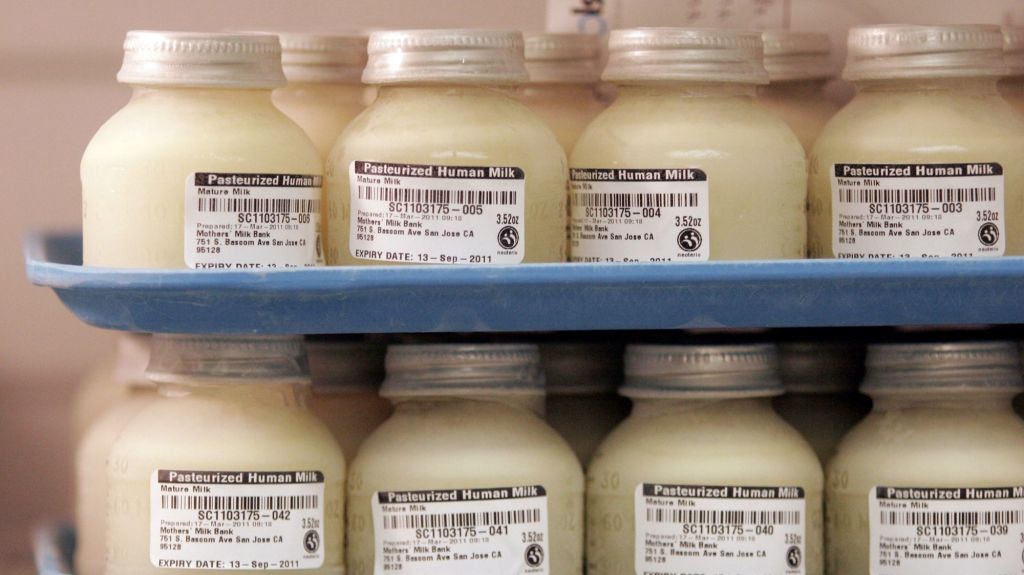In the United States, about 10% of babies are born prematurely, with black and brown babies having higher rates of prematurity than white or Asian babies. Babies born early face many medical risks.
Studies show that when breast milk is not available, pasteurized donor milk is the next best option, a fact backed by leading medical organizations including American Academy of Pediatrics, World Health Organization, and US Department of Health and Human Services. Using breast milk, instead of formula, for premature babies significantly lowers the risk of approximately 80% of them developing necrotizing enterocolitis (a life-threatening bowel infection). Recognition of the positive health outcomes linked to donor milk has led to a shift in neonatal care standards, where now the vast majority of US-based neonatal intensive care units, or NICUs, have donor milk pasteurized human available.
Consider Heather, a milk donor mother, whose baby was born very early at 27 weeks at a major hospital in Hartford. Heather was unable to breastfeed when her son was born, which is common with premature births. She was grateful that donor milk was an option for her baby in the hospital. Heather was so grateful for the donor milk her son received that she became a milk donor herself, ensuring that other vulnerable babies will have this safe and nutritious option available to them.
Where do hospitals and individuals get safe donor milk? Often non-profit milk banks, which are regulated by the FDA and the Association of Human Milk Banks of North America. Here in Connecticut, the Northeast Breast Milk Bank serves 14 major hospitals statewide. Non-profit milk banks work with mothers who have more milk than their own babies need to grow and thrive, as well as bereaved mothers. They perform rigorous health screenings, group milk donors for optimal nutrition, then pasteurize and distribute donor milk primarily to hospital NICUs where it can save lives.
According to the American Academy of Pediatrics, breastfed children have better neurodevelopmental outcomes and better long-term physical and dental health outcomes. Their risk of many medical conditions including SIDS, asthma, celiac disease, Crohn’s disease, diabetes, leukemia, childhood obesity is greatly reduced. Breastfeeding also contributes to maternal health benefits, including reduced risk of certain cancers, type 2 diabetes, and hypertension. Informed of these statistics, many mothers choose to breastfeed their newborns.
However, establishing breastfeeding can take days or weeks for some, and many families wish to avoid infant formula. Parents who wish to use donor milk as a “gateway” to breastfeeding can obtain it at some hospitals, directly through a non-profit milk bank, or at a milk bank clinic.
There are 27 nonprofit milk banks in the United States. They are entirely focused on promoting the health and well-being of babies, on a non-profit basis. Milk donor mothers are not compensated for their generous donations, which is an important ethical element specific to the non-profit sector to ensure that there is no financial incentive to limit the amount of milk received by a biological baby or to add anything to the milk. And non-profit milk banks are not allowed to “recruit” donor mothers. Potential milk donors should instead contact the milk bank themselves, often by learning about the milk bank from health professionals or by word of mouth.
The important role of donor milk as an infant nutrition option is generally not well known. There is a lot of work to be done to introduce parents to donor milk before birth, so that if offered after delivery, they know the benefits and safety standards and can make an informed decision. Also, early education about donor milk can lead to more milk donations. Moms don’t know if they will produce more milk than their baby needs. But if they find themselves with full freezers and generous hearts, knowing about nonprofit milk banks offers the opportunity to consider a donation to help medically fragile babies.
Non-profit milk banks need partners to help raise awareness about milk donation and the role of donor milk in promoting maternal and child health. Philanthropic support is needed to expand milk bank operations to meet the growing demand for this feeding option. With a more collective understanding and commitment to the nutritional health of infants, we can ensure that donor milk is available to as many babies as possible who would benefit from it, prioritizing the most medically fragile.
Dr Sarah Taylor, is Director of Neonatal Clinical Research, Yale University School of Medicine, Yale Children’s Hospital. Deborah Youngblood, Ph.D., is Executive Director of Mothers’ Milk Bank Northeast.
